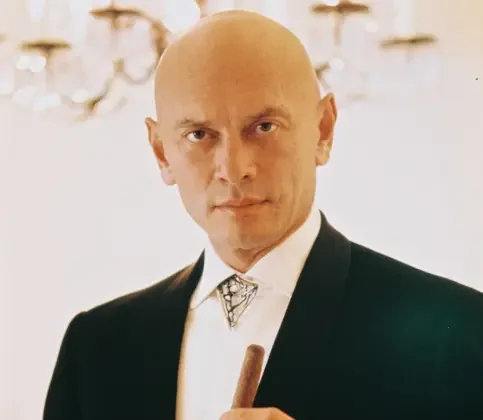Eddie Murphy’s Netflix Doc Exposes Yul Brynner’s Sexual Proposition When He Was 21

The Netflix documentary Being Eddie pulls back the curtain on the life of one of comedy’s most enduring icons. In addition to revisiting his groundbreaking work on Saturday Night Live and his string of box‑office hits, the film reveals two striking, previously untold facets of Murphy’s personality: a startling encounter with Hollywood legend Yul Brynner at a 21st‑birthday party, and a steadfast refusal to let trophies dictate his self‑worth.
The Yul Brynner proposition
Murphy remembers his 21st‑birthday celebration at the infamous Studio 54 with vivid clarity. “I was there with a bunch of people, and Yul Brynner—The Ten Commandments star—was with his wife,” he recounts. “He leaned over and said, ‘How would you like to go back to my apartment with my wife and me and party?’ I told him, ‘Nah, I’m cool.’”
The comedian admits the invitation lingered for decades. “Later I realized his wife was smiling. Did he want me to… f— his wife?” he says, half‑laughing, half‑grimacing. “The story would have ended better if I’d just gone—‘Yeah, I went back to Yul Brynner’s and f— his wife, and he was watching me… et cetera.’”
Brynner, who died of lung cancer in 1985, never confirmed the anecdote, but Murphy says the memory has stuck with him as a reminder of the power dynamics that can lurk behind Hollywood’s glitter. “It’s one of those moments that stays with you forever,” he adds, noting that the proposition was less about a party and more about an unsettling display of influence.
No imposter syndrome, no trophy chase
While the Brynner story underscores the oddities of fame, Being Eddie also showcases Murphy’s surprisingly grounded mindset. Speaking with Blavity’s Shadow and Act, he reflected on how young he really was when his career exploded. “I was a baby—22 when I filmed Beverly Hills Cop, 21 on 48 Hours—and I was still a teenager on SNL,” he says. “Looking back, I realize I was just a kid out there with no safety net.”

Yul Brynner
That early stardom, he explains, never bred imposter syndrome. “I’ve never felt like I needed a trophy to validate myself,” Murphy declares. “When I got awards, I gave them to my mother. Now they sit in a cabinet like old photographs—nice to look at, but they never defined me.” He adds that the Academy’s lack of recognition for Black talent in the 1990s never made him feel inadequate; instead, it sharpened his resolve to keep creating on his own terms.
Murphy’s aversion to awards dovetails with his broader critique of Hollywood’s “fake” atmosphere. In a separate interview with USA Today, he described award shows as “s—ty rooms full of people pretending to be something they’re not.” For him, the energy of a quiet night at home recharges his creativity, whereas crowds drain it.
A legacy of reinvention
Both anecdotes reinforce a central theme of the documentary: Murphy’s career has been guided by curiosity, not by external validation. He has deliberately stepped outside the comfort zone of action comedies, producing Black romantic comedies like Boomerang and lending his voice to animated classics such as Shrek. Producer Reginald Hudlin notes that Murphy’s “quiet agenda” has been to open doors for Black storytelling, a mission that persists even as he critiques the industry’s shortcomings.
When asked why he never pursued an Oscar, Murphy recalled his 1995 ceremony protest, where he refused to present an award because the Academy had consistently overlooked Black artists. “Maybe that’s why I’ve never won an Oscar,” he mused, “but I’m fine with that. I’m still here, still making people laugh.”
Being Eddie now streams on Netflix, offering fans a rare glimpse into the man behind the punchlines—a performer who once turned down a dubious invitation from Yul Brynner and who, decades later, still measures success by the joy he creates, not by the trophies that line his shelf.




